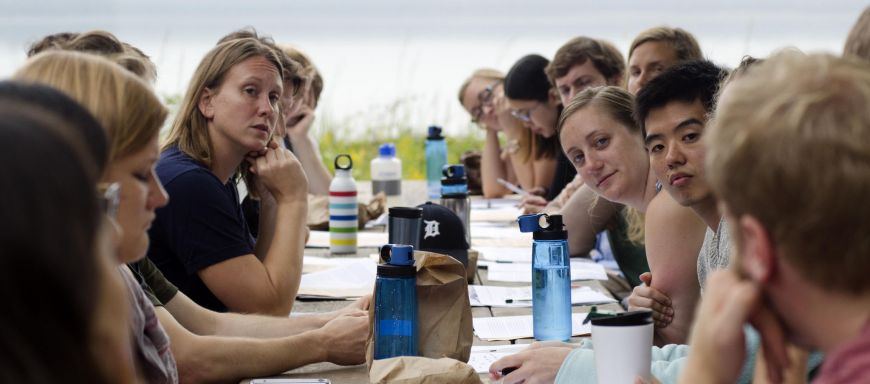
 back to all news
back to all news
Navigating the Science-Action Labyrinth

Traditionally, scientists assimilate knowledge to inform decision makers. But as sustainability concerns increase, some are seeking other ways to more directly make a difference. In this Voices, we ask scientists about how they see their role in global society and the complex landscape of converting science to action.

Jonathan Overpeck
Focus on Relationship and Trust
The call for action has never been louder—for the climate crisis, global health, water security, biodiversity, environmental justice, and much more. As a result, many scientists are working to improve communication with decision makers in society. Mostly, this has been one way: science informs decisions and updates the public. This is valuable, but more is needed. By itself, academic knowledge is often insufficient for action on pressing issues such as climate change or a global pandemic.
To overcome this limitation, researchers are increasingly partnering with members of society to combine their respective knowledge, to identify the science that is needed for action, and to drive actions that work. The foundations for partnership are built with relationships that don’t necessarily come easily. Time, patience, respect for diverse world views, and kindness are essential for building requisite trust, but the results of this extra effort can transcend simple communication to enable effective collaborative action.
Scientists are all members of their communities and are often respected in these same communities. The opportunity is obvious—what if we all put more effort into building relationships, trust, and plans of actions in our communities? What if we all worked to link community action to larger-scale solutions? Could this be our best chance to speed the transformation to a more economically robust, environmentally sound, sustainable, and just world? The answer is yes, and we don’t have time to waste.

